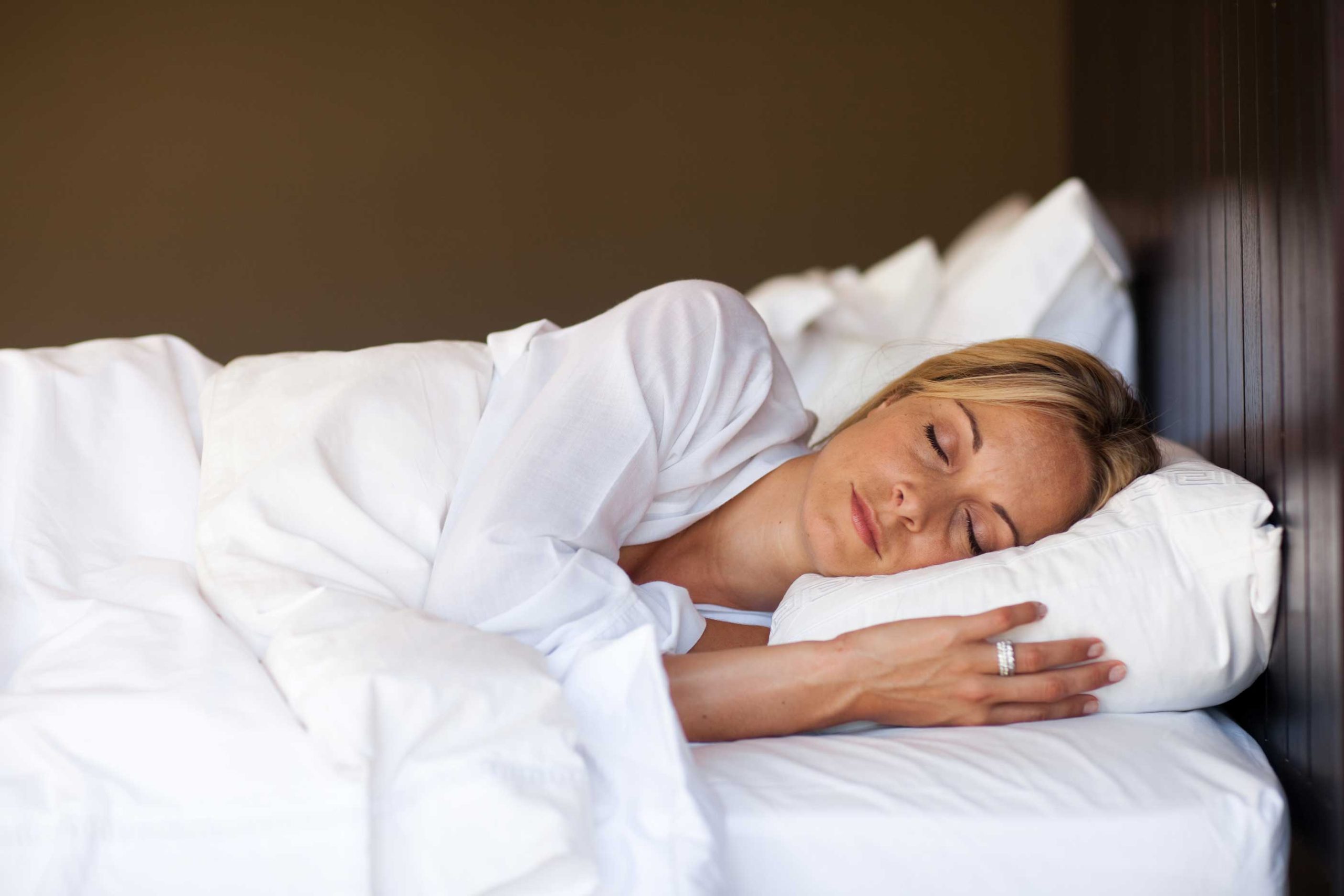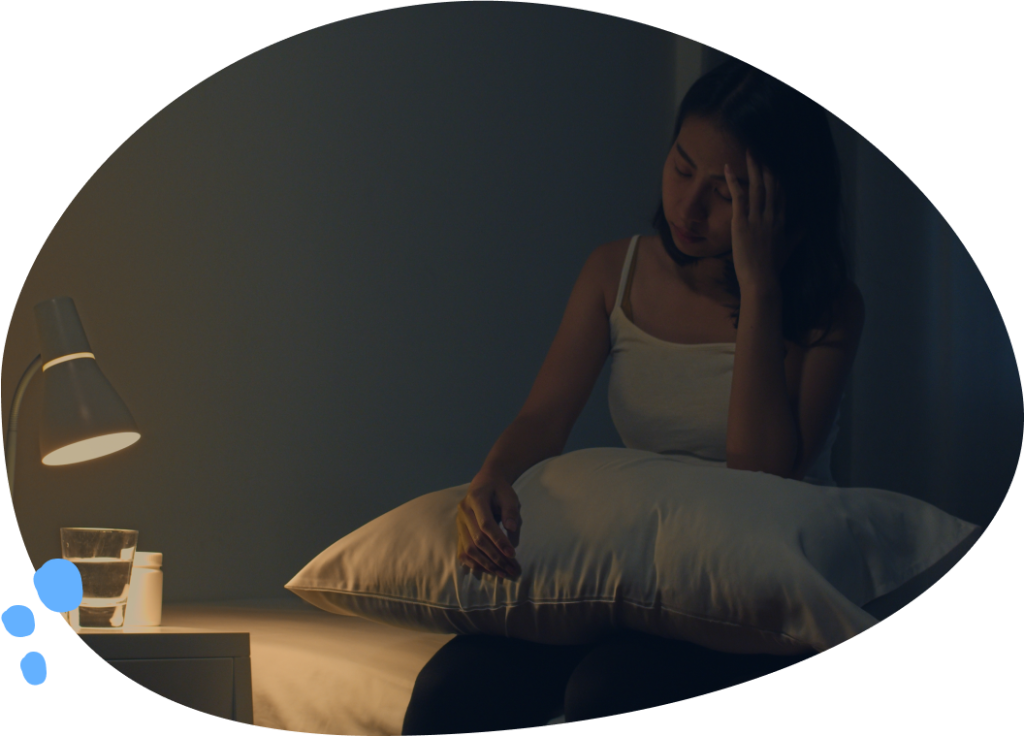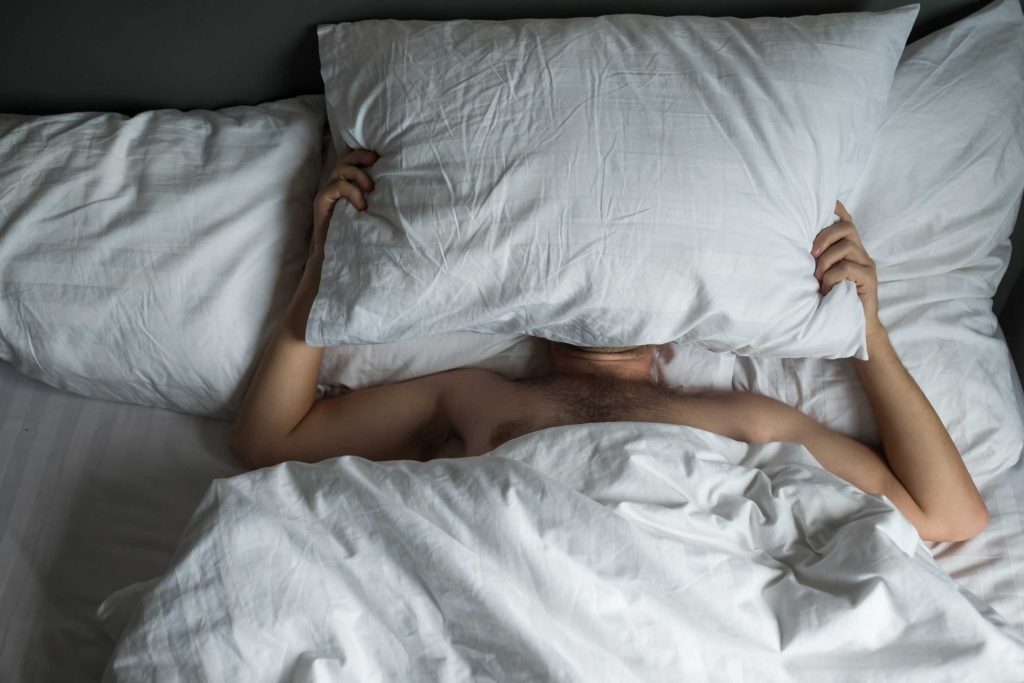
Medicinal Cannabis and Sleep.
Sleep issues are affecting more people than ever in recent years. In fact, since the beginning of the covid-19 pandemic, researchers worldwide have documented a surge in sleeping disorders. Whether you suffer from interrupted sleep, getting too little, or you’re getting too much, medicinal cannabis and CBD oil may be the natural plant-based treatment you deserve.
Medicinal cannabis has been legal now in New Zealand for several years, and the team at Cannabis Clinic have helped thousands of Kiwis achieve better sleep. In fact, trouble sleeping is one of the top three reasons our patients come to us for advice.
Sleep is essential for our mental and physical health, allowing us to ‘recharge’ at the end of the day. For those suffering from sleeping disorders, CBD oil and medicinal cannabis treatments may improve anxiety symptoms, promote relaxation and improve sleep quality, without the drowsiness associated with pharmaceutical sleeping aids. Keep reading to find out how cannabis may help improve your sleep.
Contact usWhat’s Causing Your Sleep Issues?

Troubles with sleep can stem from many different physical, neurological and environmental causes, and even aging. But the importance of sleep cannot be understated as it functions as a way for us to heal, process information and it also helps keep our immune system strong. CBD oil may help ensure the body passes through the regular stages of sleep and REM sleep without undue disruption. In our clinical experience, CBD and THC may enhance both the quality and amount of sleep.
Insomnia
Insomnia is a sleep disorder that causes difficulty in falling asleep. This condition can be caused by factors such as stress, anxiety, emotional worries, jet lag, and night shift work schedules to name a few. Insomnia can be acute or chronic and is generally defined as chronic insomnia when it occurs at least three times per week for over three months.
More people than you may imagine suffer from insomnia. Although it mainly affects older people, it can also impact kids and teenagers. In fact, 45% of New Zealanders who had their sleep patterns examined reported insomnia symptoms at least once a week.
The good news? CBD may be useful to the fight against anxiety and stress. CBD has anti-stress properties which may help calm a racing mind and a rapid heart rate. Researchers have found that the calming effects of CBD are felt almost immediately, compared to antidepressants which often take weeks to take effect.
Cortisol, a hormone associated with stress, is also frequently linked to insomnia as it can reduce the quantity of sleep and also increase feelings of wakefulness. Researchers have discovered that daily moderate use of CBD oil may reduce cortisol levels, thereby improving anxiety and sleep.
One study on healthy insomniacs showed that THC significantly decreased the time it takes for them to fall asleep over a six week period. THC was also shown to help decrease the number of times participants woke up throughout the night.
In a 2017 review of the available scientific literature, CBD was reported to potentially be helpful for treating REM sleep behaviour disorder and excessive daytime sleepiness.
Anxiety and Stress
Excessive anxiety and worry make it difficult to get to sleep and stay asleep at night. A lack of sleep can also exacerbate anxiety, creating a vicious cycle that is challenging to break. CBD may lessen anxiety symptoms, such as a racing heart, while elevating serotonin levels. The “happy hormone” serotonin may be boosted by CBD when it interacts with the body’s central nervous system receptors.
Stress and anxiety often go hand in hand. A recent study examined the effectiveness of CBD in treating post-traumatic stress disorder (PTSD). 91% of patients who took CBD orally reported fewer PTSD symptoms after eight weeks of therapy. Additionally, some patients with PTSD-related recurring nightmares benefited from CBD.
The endocannabinoid system is involved in a lot of body processes, including mental health. This relationship is so strong that many researchers have surmised that individuals suffering from anxiety, stress and other mental health disorders may have damaged or altered endocannabinoid systems.
Physical Illness and Pain
Physical illness and pain can be inconvenient, uncomfortable and reduce quality of life significantly. Both of these symptoms can also make it hard to fall (and stay) asleep. An interesting fact is that cannabis has always been used for medicinal purposes – one of the earliest recorded uses of cannabis was for arthritis. In New Zealand, about 1 in 6 people live with at least one type of arthritis, making it a relatively common condition.
There is some evidence to suggest that people with anxiety who use CBD reported associated pain relief and, because of this, improved sleep. The reason for this lies in CBD’s unique anti-inflammatory properties, which affect how the body’s receptors respond to inflammation and pain.
Most of the research using CBD for pain has been related to nerve damage. Researchers have investigated other forms of CBD oil application (in addition to oral) and found that topical application is also useful. After determining how effective CBD is for pain when applied to the skin, neuropathic or nerve damage pain was decreased.
Although the evidence is still early, CBD may help alleviate inflammation. Although experts are still unsure of the long-term impact on sleep quality, in our clinical experience, THC and CBD can help improve sleep symptoms which significantly improves the quality of life for those suffering physical illness and pain.
Autism and Epilepsy
Some people with uncontrolled seizures have reported positive results and decreased seizure activity when taking medical cannabis, especially strains high in CBD. This is valid for adults and children who suffer from epilepsy and need help with sleep. However, not everyone with epilepsy should consider medical cannabis or cannabidiol (CBD) as a treatment option so please consult your doctor.
Early evidence also suggests that cannabis may be more effective than licenced drugs at treating various ASD-related symptoms (Autism Spectrum Disorder) such as behavioural issues, hyperactivity, and sleep disturbances while having fewer metabolic and neurological side effects.
Which Medicinal Cannabis Product Can Help Me?
We all have different constitutions and health circumstances, so there isn’t one prescribed medicinal cannabis product and/or dose that is effective for everybody. It is important to seek advice from an experienced doctor to determine the most effective treatment plan for your circumstances.
CBD oil is a great CBD product option due to its portable nature and fast-acting effects. If you are wondering whether CBD oil would help you sleep make sure you talk to your GP or one of our experienced doctors. For many of our patients, we find that adding in some THC to their night-time routine can also work very well. When THC is taken orally, it does not cause a high and is very helpful in helping people feel relaxed and sleep. Generally speaking, taking CBD oil or THC an hour before bedtime allows sufficient time to start working so that you fall asleep easily once it’s absorbed effectively.
Contact usHow Does Cannabis Improve Sleep?
Medicinal cannabis may help with sleep disorders and other conditions by interacting with the body’s own endocannabinoid system. This system comprises a complex group of endocannabinoids, enzymes and receptors that affect mood, concentration, hunger, stress and pain.
The research on cannabis and sleep (insomnia) is still relatively new, and most researchers agree that more research on medical cannabis for sleep is needed before we can fully understand its impacts.
However, we do know that the two primary cannabinoids that may help are THC (Tetrahydrocannabinol), and CBD (Cannabidiol). Learn more below.
CBD
A cannabinoid present in cannabis that encourages relaxation is CBD (cannabidiol). There is some research supporting several of CBD’s health benefits, including its ability to improve sleep symptoms. There is no “high” connected to CBD. Instead, CBD functions to counterbalance or balance the high caused by another cannabinoid, THC. CBD can interact with endocannabinoid system receptors to reduce feelings of anxiety, stress, or pain.
CBD has attracted much interest for its capacity to potentially lessen anxiety, ease pain, and foster clarity and focus. Additionally, CBD may increase alertness and lessen daytime sleepiness. According to studies, CBD may lessen anxiety without interfering with sleep-wake cycles.
THC
THC seems to be the cannabinoid that actively affects sleep architecture and the amount of time spent in various stages of sleep. THC and THC-rich strains of cannabis have been the subject of several studies over the years. This cannabinoid is most closely associated with increases in deep, slow-wave sleep, lighter stages of non-REM sleep and decreases in REM sleep.
THC has sedative properties, and higher THC cannabis strains typically have a greater sedative effect. But be aware that THC containing medication can cause impairment – always leave an 8 hour window before driving or operating heavy machinery.
Contact us to find out moreConclusion
We have seen thousands of our patients having good results with medicinal cannabis and CBD oil to manage insomnia symptoms. We look forward to continuing the advancement of this natural plant-based treatment for all New Zealanders. For those who feel that medicinal cannabis may be the right choice for you, please contact us today for more information.
Questions about Medical Cannabis? Look here.
Will CBD oil help reduce my anxiety so that I sleep better?
Researchers examined the impact of CBD on several neuropsychiatric illnesses in one study. The findings demonstrated that CBD may enhance sleep scores by 66% while lowering anxiety scores by 79% in individuals.
Can CBD oil help me get to sleep faster?
One study on healthy insomniacs found that THC considerably reduced the time it took for them to fall asleep over the course of six weeks. THC was also found to lessen the frequency of individuals’ nighttime awakenings.
Does CBD oil help you get more restful sleep?
REM sleep behaviour disorder and excessive daytime drowsiness were identified as two conditions that CBD might help cure in a 2017 review of the scientific literature.
Are CBD oil and medicinal cannabis good for insomnia?
Cortisol, a hormone associated with stress, is frequently linked to insomnia. Cortisol reduces the quantity of sleep and increases emotions of wakefulness. CBD may act as a sedative, decreasing the release of cortisol, which may assist regulate cortisol levels.
References
Babson, K. A., Sottile, J., & Morabito, D. (2017). Cannabis, Cannabinoids, and Sleep: a Review of the Literature. Current Psychiatry Reports, 19(4). https://doi.org/10.1007/s11920-017-0775-9
Bachhuber, M., Arnsten, J. H., & Wurm, G. (2019). Use of Cannabis to Relieve Pain and Promote Sleep by Customers at an Adult Use Dispensary. Journal of Psychoactive Drugs, 51(5), 400–404. https://doi.org/10.1080/02791072.2019.1626953
Breus, D. M. (2022a, May 18). Cannabis and THC for Sleep. The Sleep Doctor. https://thesleepdoctor.com/cannabis-and-sleep/
Breus, D. M. (2022b, May 18). Does Marijuana Affect REM Sleep? The Sleep Doctor. https://thesleepdoctor.com/cannabis-and-sleep/does-marijuana-affect-rem-sleep/
Cousens, K., & DiMascio, A. (1973). THC as an hypnotic. Psychopharmacologia, 33(4), 355–364. https://doi.org/10.1007/bf00437513
Dienes, K. A., Hazel, N. A., & Hammen, C. L. (2013). Cortisol secretion in depressed, and at-risk adults. Psychoneuroendocrinology, 38(6), 927–940. https://doi.org/10.1016/j.psyneuen.2012.09.019
Huestis, M. A., Solimini, R., Pichini, S., Pacifici, R., Carlier, J., & Busardò, F. P. (2019). Cannabidiol Adverse Effects and Toxicity. Current Neuropharmacology, 17(10), 974–989. https://doi.org/10.2174/1570159X17666190603171901
Marco, E. M., García-Gutiérrez, M. S., Bermúdez-Silva, F.-J., Moreira, F. A., Guimarães, F., Manzanares, J., & Viveros, M.-P. (2011). Endocannabinoid System and Psychiatry: In Search of a Neurobiological Basis for Detrimental and Potential Therapeutic Effects. Frontiers in Behavioral Neuroscience, 5. https://doi.org/10.3389/fnbeh.2011.00063
McDermott, N. (2022, June 3). CBD For Sleep: Benefits, Risks And More. Forbes Health. https://www.forbes.com/health/body/cbd-for-sleep/
Sales, A. J., Fogaça, M. V., Sartim, A. G., Pereira, V. S., Wegener, G., Guimarães, F. S., & Joca, S. R. L. (2018). Cannabidiol Induces Rapid and Sustained Antidepressant-Like Effects Through Increased BDNF Signaling and Synaptogenesis in the Prefrontal Cortex. Molecular Neurobiology, 56(2), 1070–1081. https://doi.org/10.1007/s12035-018-1143-4
Shannon, S. (2019). Cannabidiol in Anxiety and Sleep: A Large Case Series. The Permanente Journal, 23. https://doi.org/10.7812/tpp/18-041
Vučković, S., Srebro, D., Vujović, K. S., Vučetić, Č., & Prostran, M. (2018). Cannabinoids and Pain: New Insights From Old Molecules. Frontiers in Pharmacology, 9. https://doi.org/10.3389/fphar.2018.01259
